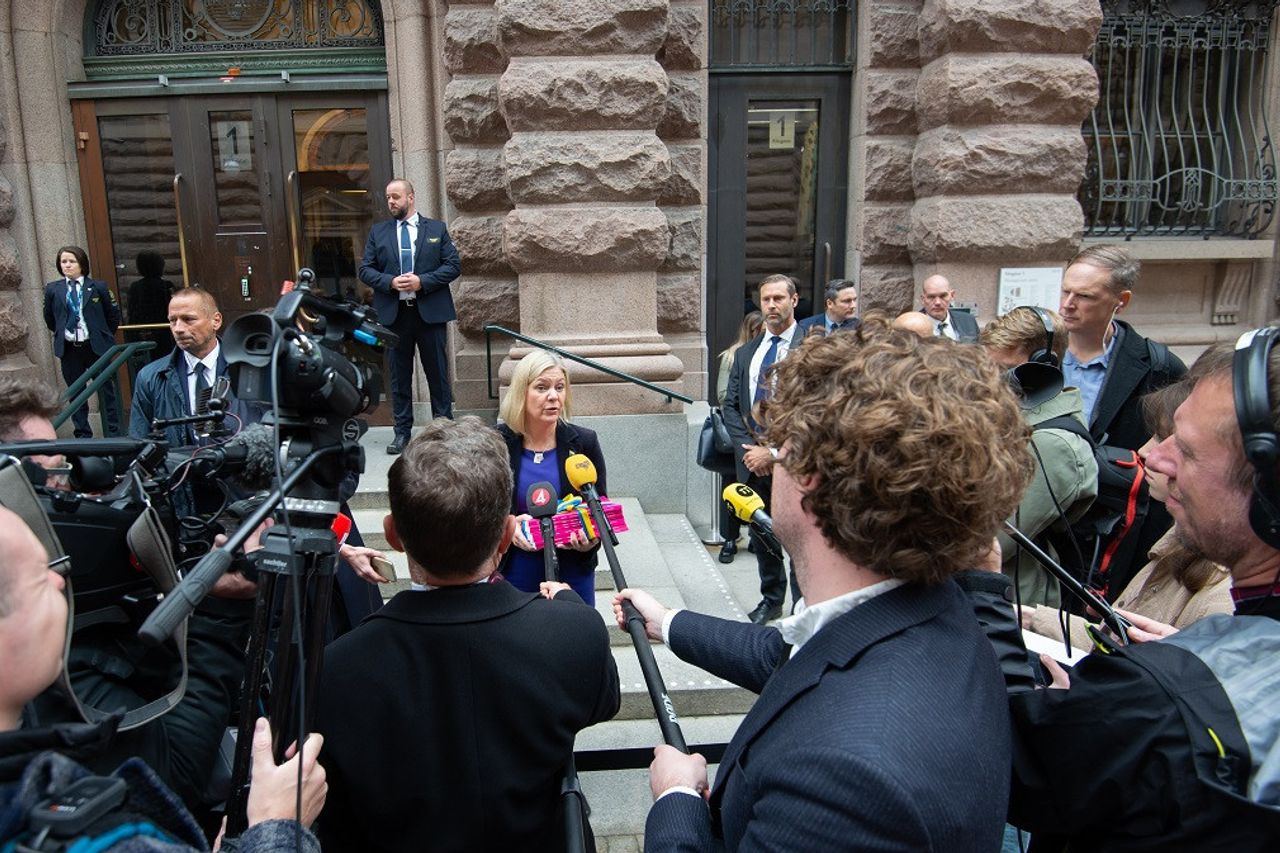Re-elected Prime Minister Of Sweden, Magdalena Andersson Ready To Run Minority Government

JAKARTA - Sweden's first female Prime Minister Magdalena Andersson was reappointed on Monday, days after she quit amid political turmoil and has only served for a few hours.
Lawmakers narrowly elected the prime minister for the second time in less than a week, after she laid out plans for a minority government made up of only her Social Democrats.
The former Swedish finance minister had won the same vote on Wednesday last week but gave up hours later after her junior coalition partner left the government due to missing budget votes.
"Like all minority governments, we will seek cooperation with other parties in parliament, and I see a good opportunity to do so," PM Andersson said, citing Reuters November 29.
To note, from a total of 349 seats in the Swedish Parliament, the Social Democratic Party that supports it has 100 seats.
"The Social Democrats have the largest party group in parliament by a wide margin. We also have a long tradition of working with others and are ready to do what is necessary to lead Sweden forward," she explained.
The leader of the far-right opposition Moderate Party, Ulf Kristersson, described the upcoming government as a 'nine-month interim government', saying it would not be able to achieve much ahead of elections scheduled for September 2022.
According to the BBC, in Monday's vote in the Swedish parliament, the Riksdag, 101 of its 349 members voted yes, 75 abstained and 173 voted no. To be appointed prime minister under Sweden's political system, a candidate only needs to avoid a majority vote against them.
PM Andersson had to lead one of Sweden's weakest governments in decades, and manage a budget that was partly formulated by three opposition parties, including the anti-immigration Sweden Democrats, whose gains over the past decade lie at the heart of Sweden's political turmoil.
Parliament adopted budget amendments proposed by the opposition last week that profoundly changed the government's spending plans.
Meanwhile, the Social Democrats have been in power since 2014 supported by parties united by their desire to prevent the Swedish Democrats from influencing policy.
SEE ALSO:
The centre-right opposition has struggled to muster enough votes to form a majority government and opinion polls suggest there may be little change in the political calculus in the next election.
To note, PM Anderson will face a big challenge. Gang violence hit the outskirts of major cities. Health services are barely coping with the pandemic and need to be strengthened, while governments need to manage the promised transition to a zero-emissions economy.
In addition, without the support of other parties, PM Andersson will struggle to pass the law in parliament.

